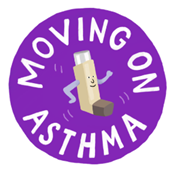Anyone can start with asthma at any time in their lives, from young children through to adults and elderly people.
Asthma Frequently Asked Questions
Asthma is really common. The chances are there are at least 2 other people in your class who have asthma like you.
 Beat Asthma has some great advice for young people about asthma.
Beat Asthma has some great advice for young people about asthma.
 Visit the Healthier Together asthma pages for further information.
Visit the Healthier Together asthma pages for further information.
 Moving on Asthma has information to help young people with asthma to live independently.
Moving on Asthma has information to help young people with asthma to live independently.
Below are the answers to some questions we often get asked by young people.
A diagnosis is made by putting the pieces of the jigsaw together. It starts with a really good understanding of your symptoms, and any previous medical problems. We may also ask about medical problems in your family. We may do some tests, such as peak flow, spirometry or FeNO. This can help us build a picture of what’s happening in the small airways in your lungs. Usually you are then given a trial of treatment to see if this helps or not. We then put these pieces of the puzzle together to work out if you have asthma.
Some people might be referred to hospital for an appointment or investigations, it depends on what is available at your GP surgery.
A diagnosis can take some time but it’s important to get it right.
It is harder to diagnose children under the age of 5 as they are usually unable to do the breathing tests.
Everyone is different, but uncontrolled asthma can affect people in many ways. Some people might be troubled by a cough or wheeze, others may find simple activities difficult. It might even keep you awake at night.
Well controlled asthma means that you can live your life without these troublesome symptoms.
Visit What is asthma? for a video which explains a bit more about the lungs and airways.
Well controlled asthma means you rarely get any asthma symptoms, such as cough, wheeze and breathlessness. It means you should rarely need to use your reliever inhaler (usually blue salbutamol).
This means you are still getting symptoms and using your reliever inhaler (usually blue salbutamol) 3 times a week or more. There could be a number of reasons for this such as contact with triggers, forgetting to take your preventer inhalers, not taking the inhalers correctly, or even needing an increase in your medications.
A trigger is something that irritates the little airways in your lungs and causes inflammation. Every asthmatic has different triggers but common ones include, dust mites, pollen, strong smells, smoke, damp and mould, pollution, and animals.
No, but it can be managed really well by avoiding triggers, taking your prescribed medicines and inhalers correctly and following your asthma plan.
There are 2 types of inhalers that work really well for most people, preventer and reliever inhalers.
Preventer inhalers
The preventer inhaler is the one that helps to keep your asthma under control. It is usually taken every morning and every evening. It contains a very small amount of steroid medication which helps keep the little airways in the lungs calm and stops the swelling and inflammation building up. It’s really important not to miss any doses of this, even if you are feeling well. There are lots of different types of preventer inhalers, but the common ones you may see are brown, purple, grey and red.
Reliever inhalers
The reliever inhaler (usually blue salbutamol) is to be used when you experience asthma symptoms. This helps relax the small airways in the lungs and makes it easier to breathe again. If you need to use this 3 times a week or more you need to let your nurse or GP know and book an urgent review.
Visit Your child's asthma medication for more information about medications, inhalers and spacers.
Yes! The inhalers have to be used in a very specific way for them to work. There are lots of types of inhalers out there that are taken differently so it’s really important to make sure you know how to use your inhaler correctly. If you don’t take your inhaler correctly, the medication inside it won’t go down to your lungs properly and it won’t help your airways like it should.
How to use your inhaler shows short videos about all of the different inhaler devices. Have a look to check you are using yours correctly.
If you have an aerosol inhaler then yes! The aerosol inhalers (known a pMDI) spray the medication very fast, some can be up to 60mph! It’s really hard to coordinate your breathing with this spray coming out so fast. If you use your aerosol inhaler directly into your mouth most of it doesn’t actually get to your lungs. A spacer helps slow the delivery of the medication so that most of it gets into your lungs.
Some inhalers are known as dry powder inhalers. You don’t need to use a spacer for these.
Visit how to use your inhaler for information and videos about how to take your inhaler correctly.
Don’t take a double dose to make up for a missed dose. Try to build it into your routine at home. Many people find that by bringing their preventer inhalers downstairs and into the kitchen they remember better. Perhaps have it when you have breakfast and your evening meal, or just before brushing your teeth in the morning and before bed. You could even set a reminder on your phone every day.
Steroid in the inhalers is very different to tablet steroids. The steroid in the steroid inhaler is usually a very small amount. Many people take this with little or no side effects at all. Some people may get oral thrush. The chances of this can be reduced if you use a spacer for your inhaler, and rinse your mouth out after using your inhaler.
If you are taking a higher dose of steroid in your inhaler you may be given a steroid card which you should show if you need any medical or dental treatment.
Yes, you should really try to avoid anything that sets your asthma off. Your triggers will usually make your asthma worse. Remembering your preventer should mean you are less likely to react badly to your asthma trigger, but you can still react.
Here is some more information about some of the common Asthma Triggers.
If you find that being around your pet makes your asthma worse it’s a really good idea to avoid them. If you are unable to rehome your pet, make sure it doesn’t sleep upstairs or go on your bed. Try to reduce your contact with them as much as possible, even keep them outside if possible. You might find it helps to have your pet bathed once or twice a week. Check your vacuum has a HEPA filter.
Look at Allergy UK for further advice about managing pet allergies.
No, doing sports and exercise is really good for lung health. If your asthma is well controlled it shouldn't stop you exercising. If asthma is stopping you from doing activities, then you need an asthma review. The important thing is to follow your asthma plan, remember to take any medications you might be prescribed, and talk to your nurse or doctor if you have any questions.
You should make sure that your asthma plan, reliever inhaler and spacer (with your name on) are kept in school so that school staff can help you use these in an emergency.
Many schools are now Asthma Friendly, or staff may have completed first aid and asthma training.
Talk to your school if you are unsure.
For clubs after school always take your reliever inhaler and spacer with you, either at the side of the football pitch, or with your coach or leader. You should make sure that your coach or leader knows you have asthma and that they have a copy of your asthma plan.
It’s really important not to smoke or vape if you have asthma. Smoke can irritate airways and cause asthma attacks. In fact, just being around someone who has smoked or vaped can trigger asthma attacks too.
For further information about smoking and vaping visit our page to see what support is available where you live.
You will be invited to asthma reviews at your GP surgery, at least once a year. It might be more often if you are having problems. It’s really important to keep following your asthma plan until you have your review. If you need your reliever inhaler 3 times a week or more, make an appointment for a review. Remember to always carry your reliever inhaler and spacer with you, and follow your asthma plan.



